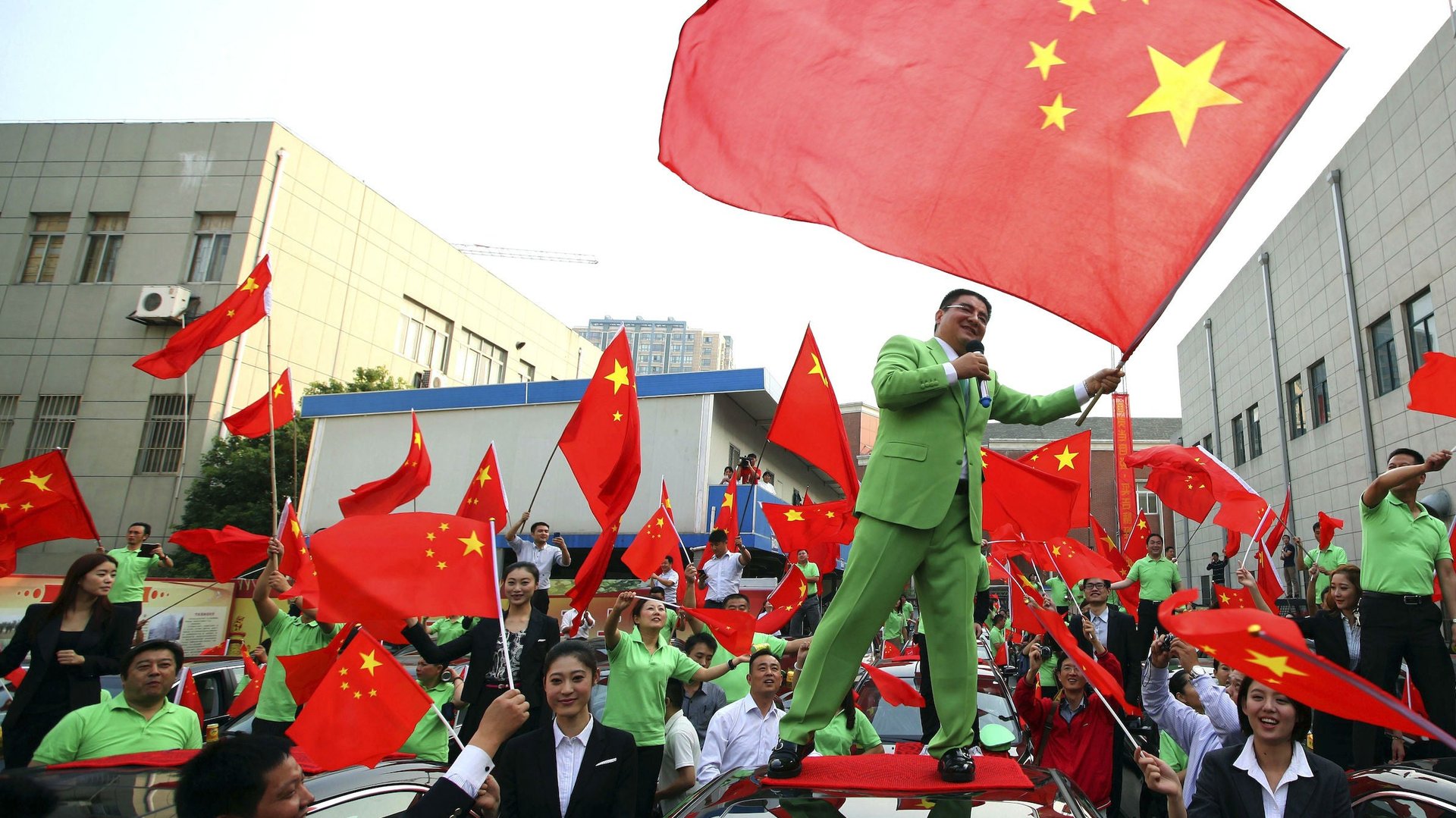This Chinese tycoon and absurdist philanthropist thinks he has a shot at buying the New York Times
Chen Guangbiao, the 45 year old self-made multi-millionaire who said this week he hopes to take over The New York Times, has been generally dismissed as publicity-seeking, naive and overly-optimistic about his business ventures.


Chen Guangbiao, the 45 year old self-made multi-millionaire who said this week he hopes to take over The New York Times, has been generally dismissed as publicity-seeking, naive and overly-optimistic about his business ventures.
While Chen’s chances at taking over the American paper may be exceedingly slim—executives at the paper say they have no meetings planned with him, and there are billionaires with way more ready cash who would certainly be equally interested—he is in many ways an intrepid businessman whose rags-to-riches story makes him one of China’s most notable entrepreneurs. (But let’s be clear, he has no chance of acquiring the Times, whose stock climbed 90% last year.)
Chen grew up so impoverished that two of his siblings died of starvation. He started working at age 10, selling water and later frozen treats to villagers. He eventually earned enough to pay for university in Nanjing. Soon after graduating, he invented a device to be used in Chinese medicine that detects bodily ailments related to a person’s energy, or qi, his first major business venture. Today, he runs a waste management company in Jiangsu province and his estimated wealth of $810 million puts him in the top 400 (number 372) in a September ranking of China’s richest.
But Chen is better known for his eccentric philanthropy, which critics say is mainly for the sake of publicity. Chen pays local reporters to cover his charity efforts like stuffing wads of cash into the hands of villagers or inexplicably tasting fire extinguishing foam (a photo slideshow) to promote disaster relief. He claims to have hauled 200 bodies out of the rubble of the Sichuan earthquake in 2008, and has handed out envelopes with thousands of dollars in cash on the streets of Taiwan. Cans of “fresh air” that he sold last year have the phrase “Chen Guangbiao is a good man” printed on one side.
Even those stunts may have been a smart business move. According to a report (link in Chinese) last month by the China Business Daily, once Chen became famous as a philanthropist he began to win profitable government contracts. In 2010, a government directive ordered Chinese media not to run negative articles about Chen. Given the slew of critical stories on Chen, that appears to have been lifted.
Gang Yang contributed additional reporting.